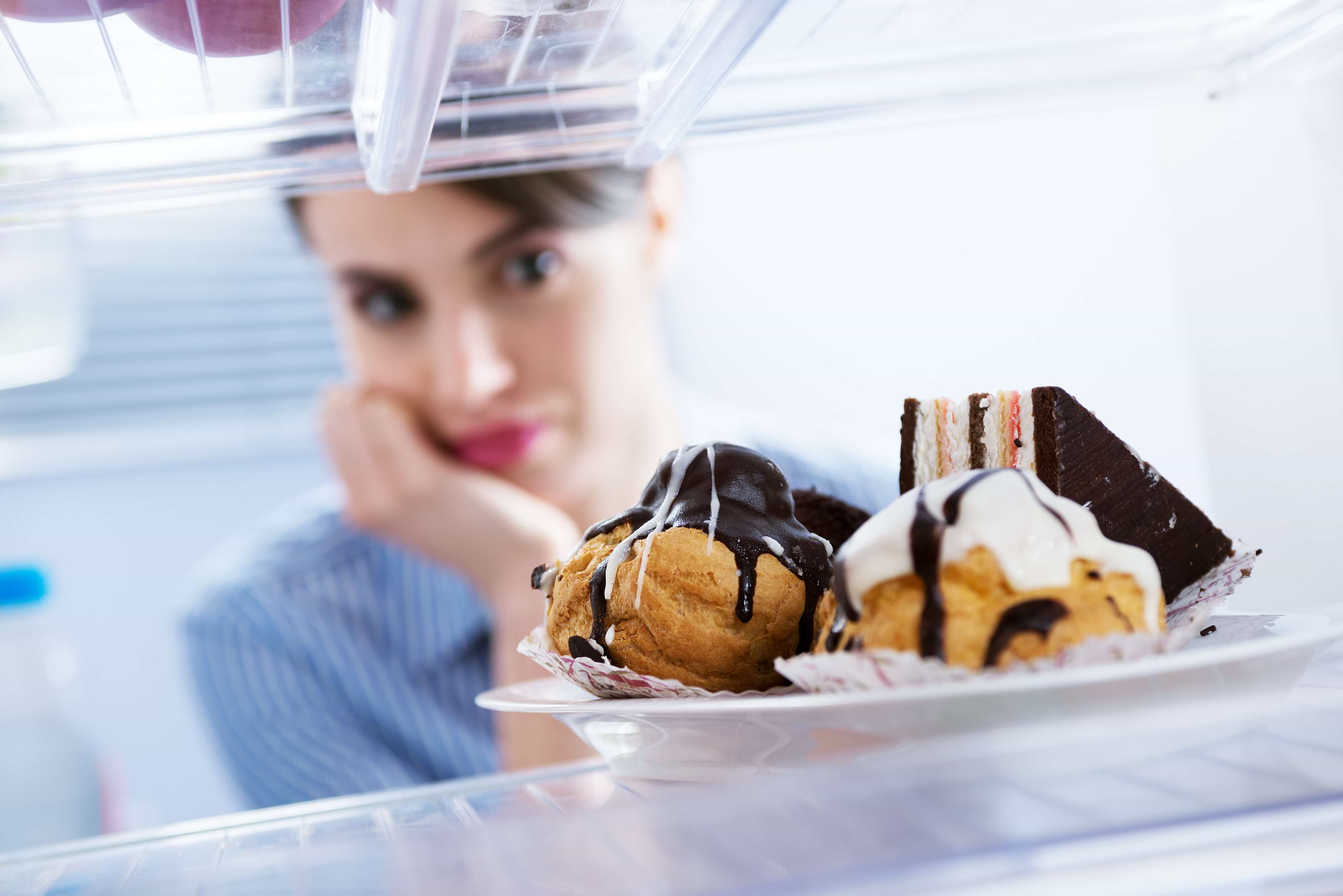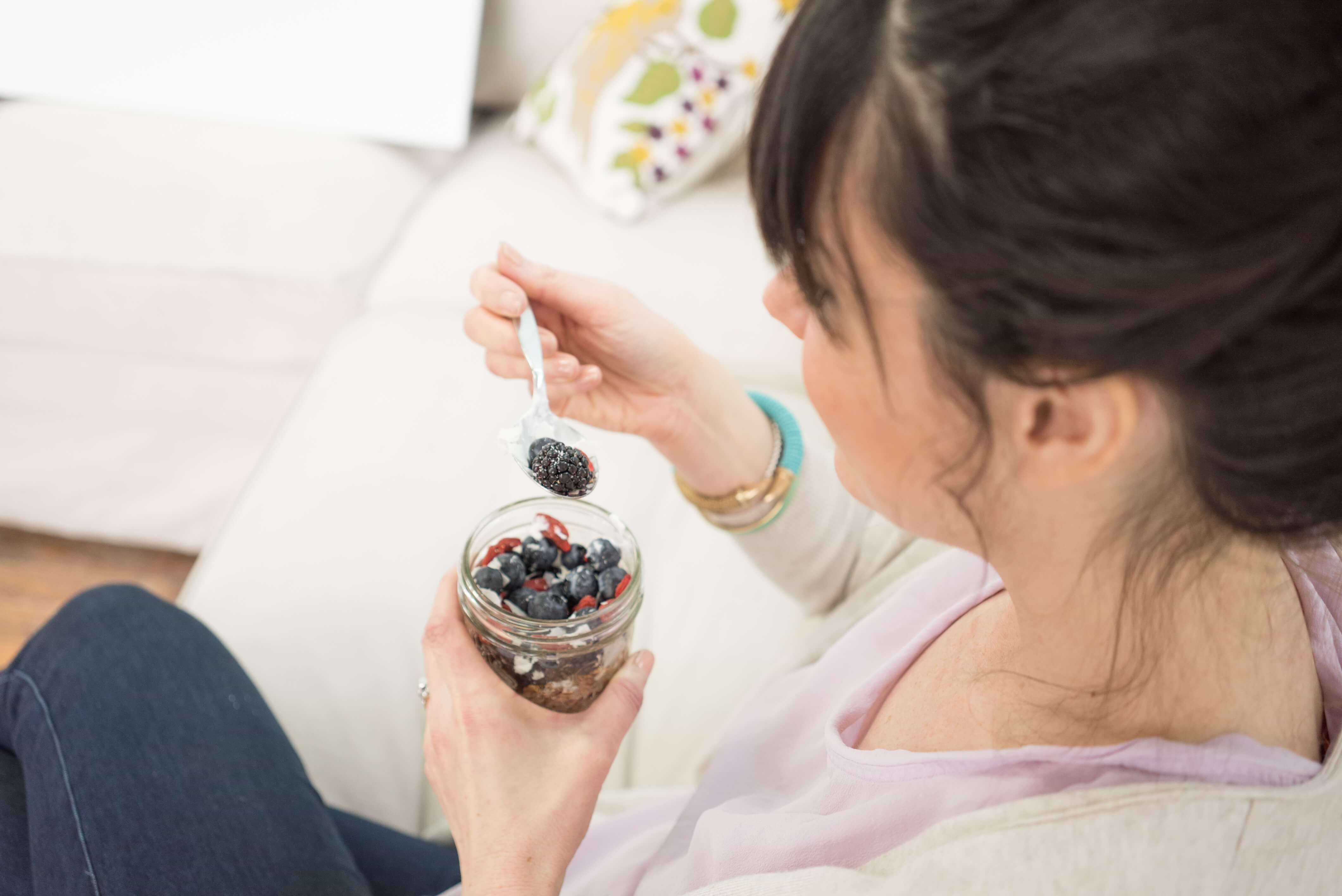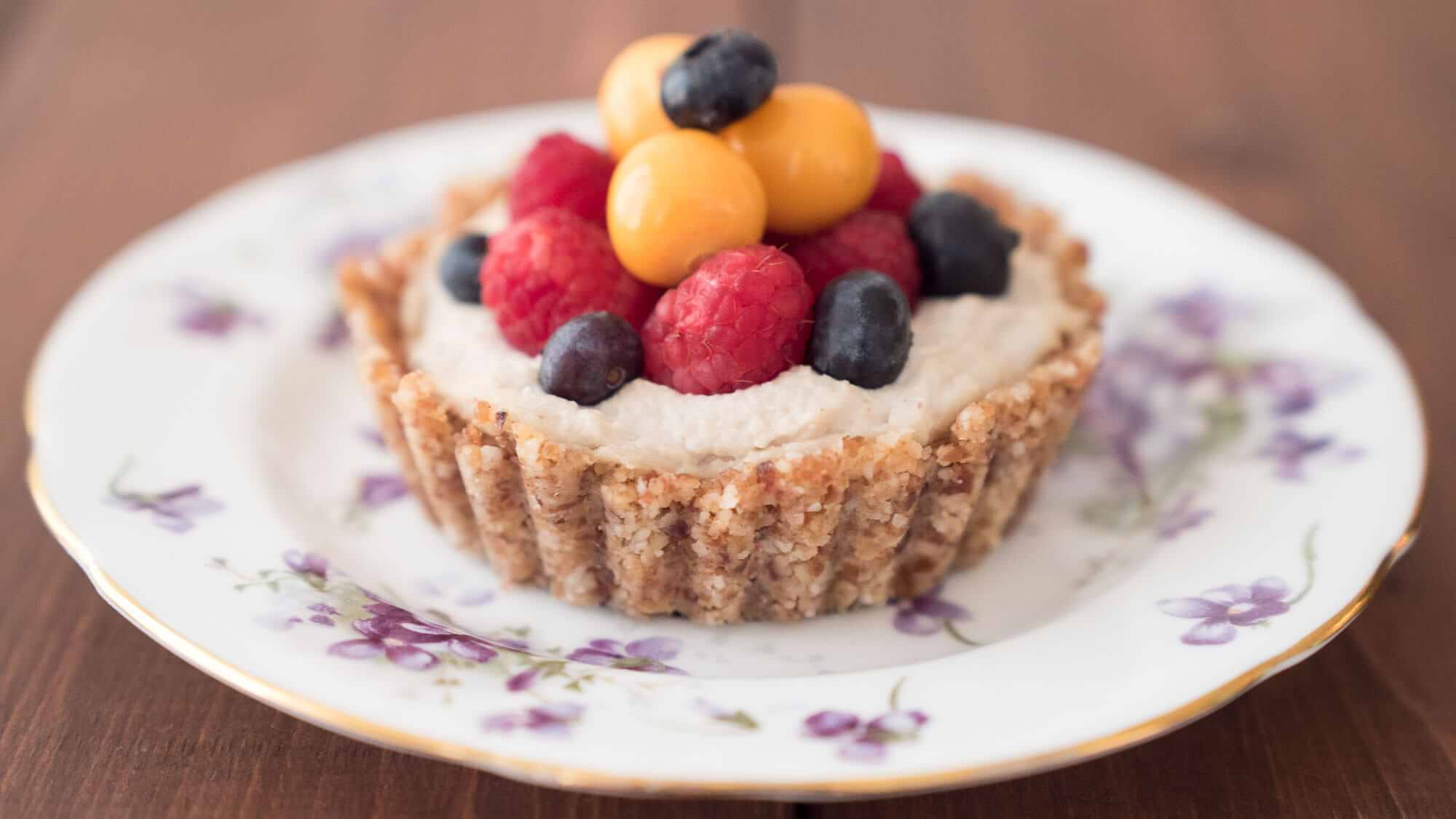Welcome to thoughtful, organic beauty
Hello Joyous is an organic, plant-based, sustainable beauty brand here to bring more joy to your day.
We are all emotional eaters to some extent. From my experience working 1:1 with clients, more than half of them had struggled with emotional eating at some point. In fact, it seemed that most people knew a lot about nutrition, but when it came down to putting it all into action, emotional eating would get in the way and keep people from reaching their health goals.
Emotional eating, binging and disordered eating were all a huge part of my past before I became a Holistic Nutritionist, but now I can confidently say that I have the best relationship with food that I have ever had as a result of getting to the root of what was triggering my eating habits and learning to appreciate food for the nourishing and delicious fuel it provides! My hope is to share some insights I’ve picked up along the way from my personal experiences combined with my studies on emotional eating and bring you closer to achieving your health goals and ultimately, establishing a healthy relationship with food.
Often people confuse emotional eating for not having willpower or self-control. The reality is that it’s not about this at all.
The main reason people eat emotionally is to fill a void or an emotion that they are struggling to cope with in other ways. When we choose food as a coping method over consciously working through something, we’re choosing to be powerless and succumb to the food trance because when we’re conscious or aware, we’re forced to feel every emotion and that can be difficult for people to sit with.
I love the way Emotional Eating Expert, Geneen Roth, puts it in her book, Feeding the Hungry Heart:
“We eat when we are lonely. We eat when we are sad. We eat when we are bored. We eat when we are angry, grieving, frustrated, frightened or even happy. We eat because we don’t know what to do with our feelings and food is here, there, everywhere. It’s cheap, tastes good and doesn’t talk back. But if we are ever going to solve serious problems that result from emotional eating, we need to understand that the main reason people eat is to feed their hungry hearts.”
So while you might think you just have an insatiable appetite, out of control cravings and no self-control, I’m going to show you how it's not about that at all and how you can take steps towards managing your emotional eating.
5 Ways To Stop Emotional Eating
1. Understand Your Emotional Eating Triggers

When do you typically find yourself reaching for comfort food that results in mindless eating or overeating? These are the types of things I want you to start paying attention to. Is it when you are bored? Procrastinating? Angry? Or stressed? I know for me, procrastination and stress are huge. If I’m not feeling inspired or feeling stuck, I immediately feel myself wanting to reach for some comfort food. But what we ultimately need to figure out is how to sit with these emotions and work through them without using food as a Band-Aid. We’ll get to that later on, but first off, it’s important to figure out what is causing your emotional eating.
Start by paying attention to those cues when you feel yourself heading towards the kitchen when you’re not hungry. What are they? Write them down. Get specific about what’s bothering you. Instead of saying “I’m so stressed”, say “I’m so stressed because of X, Y, Z.”
When we can determine a root cause, we give ourselves the power to do something about it.
Next, make a list of all of the different ways you could bring the same feeling you’re craving without using food.
If this is difficult for you, it might be helpful to keep a food & emotions journal to record your dietary patterns, how you felt and any key takeaways. You can download our FREE Food & Emotional Journal over here!
On top of that, list the ways emotional eating has benefited you. Did it offer you comfort or a distraction? Then list the ways emotional eating has affected you negatively. When your brain is able to see that the cons outweigh the pros (as they usually do), it's easier to release that emotional eating habit.
If you’re still feeling the same way after sitting with these emotions and making the list, I would say, simply indulge in what you’re craving. Don’t resist it or forbid yourself from having it entirely.
When we put restrictions around food, we build a novelty around it and may develop uncontrollable desires for it as a result.
We may find we end up overeating or binging on that food if we let that resistance build up too much. Just try to strive for a high-quality source of whatever you’re craving so you can get some nutrition in there that is actually going to satisfy you on a cellular level.
2. Eat Only When You’re Actually Hungry

How many of us eat by the clock, as in, it’s 12:00pm therefore it’s lunch time and I must be hungry? You’re not alone. I remember going to bed in the past and being so excited for the morning, just for the opportunity to wake up and eat my favourite LIFE or Vector cereal (back in my cereal eating days). I didn’t care if I wasn’t hungry because it was an opportunity I could eat.
A lot of emotional eating occurs in a passive, mindless place. More often than not, we’re not actually hungry and just using food as a drug to help us cope with an emotion. I want you to try really tuning into your hunger before reaching for any food or sitting down for a meal.
Ask yourself these questions to decipher whether you’re actually hungry or just using food to cope. Another test I’ve heard of people using in the past is The Broccoli Test. The Broccoli Test is quite simple and just requires you to ask yourself “Would I eat broccoli right now?” If the answer is yes, you’re probably hungry. If the answer is no, you’re probably not super hungry yet. Now, I want to make it clear that I have nothing against broccoli because I love broccoli with all of my heart. But I will admit that it’s not typically a food that I crave so if I’m really yearning for it, it must be an indicator that I am hungry and simply need fuel instead of the comfort that a specific food could provide me at that given moment.
3. Practice Mindful Eating

Put away the phone, the computer and turn off the TV. Make a point to only eat when no distractions are present and you can be solely focused on the food in front of you.
Emotional Eating happens in the complete opposite state. We’re often focused on something else, in some sort of trance, reaching our hand to the food to the mouth in a synchronized pattern.
What I want to encourage you to do instead is to pay attention to every fine detail of the act of eating. After you’ve eliminated all potential distractions, say a few words of gratitude out loud or in your head for the food in front of you. With that said, make sure it’s on a plate – not straight out of the bag or package. It’s important that you can see the amount that you’re eating. Think of all of the love and effort that had to go into growing that food, where it came from and all of the steps in between of where it had to go to eventually land on the plate in front of you.
When you take a bite, savour it – the texture, the flavour and how it makes you feel on an emotional level.
A good rule of thumb I typically tell my clients is to chew your food 25 times or chew until it reaches the consistency of a fine paste. This makes it easier on digestion, gives you time to experience the food thoroughly and time for your brain to recognize when your belly is full.
4. Don’t Restrict Yourself From Specific Foods

This is when the lines between being an Emotional Eating Expert and a Holistic Nutritionist start to get blurred because the Holistic Nutritionist in me would say “don’t eat the cake eat the healthy energy ballinstead” whereas the Emotional Eating Expert in me would say “if you really want the cake, eat the slice of cake.”
While I still believe nutrition is a key part of healing from emotional or disordered eating of any kind, I do believe that healing the emotional aspect first is super important. Working with clients 1:1 showed me that you can give someone all of the tools and information they need to reach their health goals but if there is an emotional issue burdening them, all of the recommendations to eat more fermented foodsor swap refined sugar treats for naturally sweetened treats doesn’t really matter.
By forbidding ourselves from certain foods, we’re more likely to turn to those foods and binge on them when an emotional eating crisis arises.
There’s actual science behind the fact that foods like chocolate are going to bring about more pleasurable feelings than a kale salad. That’s because chocolate stimulates dopamine production which is a “feel good” neurotransmitter found in our brain.
I’m not saying this is your hall pass to eat all of the chocolate and ice-cream you want, but if you want chocolate, have chocolate. Strive for high-quality pure chocolate (if possible) that will really satisfy you on a cellular level. I promise you’ll be more satisfied and content as a result. When we can take away the fantasy or novelty we put around foods, the extreme pleasure we’re seeking from food dissipates and we’re left to find other healthier coping mechanisms to deal with our emotions.
5. Respect Your Body

When we respect our body, our actions reflect that. We put forth positive steps to support the overall well-being of our body so it can thrive, be its healthiest, feel its best and do what its meant to do. Alternatively, when we criticize, scrutinize and hate on our body, our actions reflect that. We give ourselves permission to point out the faults in ourselves, break down our self-worth and justify actions such as numbing ourselves with food.
The reality is that when we appreciate our bodies, we treat them differently. The first time I joined a CrossFit gym was the first time I was able to appreciate my body for what it could do. Instead of criticizing myself for my big thighs or big bones, I started thanking my body for giving me those big thighs and bones that allowed me to move, lift heavier things inside or outside of the gym or sustain me through a long workout or a hefty hike outdoors. I stopped using weight loss or the food I ate too much of the night before as my reasoning to go to the gym.
I started going to the gym because I fell in love with the way it made my body feel.
A big turning point in respecting my body was developing positive affirmations and shifting my thoughts to be more positive. I would remind myself of the following:
“My body deserves to be nourished and fueled with real whole foods”
“My body deserves to move comfortably”
“My body deserves to wear cute clothes”
“My body deserves rest instead of a workout today”
If there is a negative affirmation, thought or belief you are telling yourself right now, stop it in its tracks and change it. Flip it to the positive. Start reminding yourself of your worth and how amazing you are! When we can respect our body and feel good about who we are as a person, we can stop using food to control how we feel about ourselves.
If you are ready to get the root of what is controlling your eating habits to eventually pave your path to vibrant health and happiness, download your FREE copy of the Food & Emotions Journal today!
Do you have an experience with emotional eating that you overcame or are struggling with? Share it in the comments below!
Very informative. Thanks for the post, Rachel. Hope you can make a podcast about emotional eating.
ReplyHey Smita, I will have to do that soon :) I touch upon it briefly in this podcast I recorded with the Gluten Free Girlfriends Podcast. You can find it in Episode 3: https://itunes.apple.com/ca/podcast/gluten-free-girlfriends/id1248151236?mt=2 Rachel - Joyous Health Team
Omg thank you so much Rachel for this joyful article!!
ReplyThank YOU for reading it, Stephanie! Hope you could walk away with some insights from it :) Rachel - Joyous Health Team
Thank you Rachel, this is really helpful for me. Kindly.
ReplyHey Nilu, That makes me so happy to hear that :) Thanks for your comment! Rachel - Joyous Health Team
I love the crunch in my mouth of soda crackers(that is slightly better choice than a huge serving of ice ceam) but I eat a whole package....almost every night. I try not to buy them(but usually relent) and certainly if I buy ice cream and eat it for days in a row my stomach suffers. A better choice that I am striving to be consistent with is eating carrots (preferably organic) and hummus. I get the crunch and it takes awhile to eat. I am definitely eating because I am lonely/wanting love but am getting used to and loving being in my own skin and not codependent.
ReplyHey Alex, I'm happy to hear you are actively thinking about your relationship to food and paying attention to the "why" behind your actions. I can totally relate! Once you've established the cause of your emotional eating (i.e. loneliness/wanting love), I would recommend you explore various ways you could fulfill those without food. Start by journaling to try to get to the root of it. It sounds like self-love practices and connecting with others – be it friends, family or a lover – could be helpful for fulfilling both of those but only you and your body will know what you really need, which may come through trial and error. As for the soda crackers, is there another food you are resisting for the crunch factor but are subbing in the soda crackers instead thinking it may be a "healthier option"? Would be interested to hear that, as I find that when people simply satisfy their cravings and stop resisting food, we feel more satiated as a result which will keep us from 1) eating food that doesn't actually fulfill us emotionally or physically 2) overeating specific foods. Feel free to email us at [email protected] if you wanted to talk more about this in more of a confidential setting :) Rachel - Joyous Health Team
I never realized how true this is for me... I am such an emotional eater! Thanks for sharing these tools. Amazing article!
ReplyHey Siobhan, I'm so happy you could walk away with some insights after reading this :) Let me know if you ever have any questions! Thanks for reading! Rachel - Joyous Health Team
What are the best healthy foods to eat at night? I always eat chips something easy to grab. Suggestions. Thanks Joy.
ReplyThanks for this post, Rachel. I think it is relevant for so many of us. I'm curious about your thoughts on food addiction. While my own recovery from eating disorders many years ago was guided by the principle of "no forbidden foods," I still find that there are certain things I can't stop eating once I've started and that leave me feeling both guilty and physically unwell afterward. This leads me to believe that there's a biological component to my eating behaviours that is simply outside of my conscious control. I recently discovered the "Bright Line Eating" approach espoused by Dr. Susan Peirce Thompson. She is a recovered addict (food and other substances) and supplies a very convincing scientific rationale for how and why some of us become addicted to certain foods. You cited dopamine in relation to chocolate consumption; to Dr. Thompson, dopamine is the crux of the whole matter of food addiction. She argues that if you're susceptible, you won't be able to limit yourself to just eating trigger foods in moderation; you must eliminate them from your diet completely. In her program, this is not done for reasons of restriction, but actually with the goal of freedom in mind -- freedom from addiction to certain foods, namely refined sugars and flours. I'd be very interested to hear your thoughts on this. Thanks, Alanna
ReplyHey Alanna,
Thanks so much for your note and for sharing a part of your story with me. I think there's truth to what Dr. Susan Peirce Thompson is saying in Bright Line Eating but I also think our obsession with food or inability to stop eating still comes from a place of not fully giving ourselves permission to eat foods (like how you mentioned "no forbidden foods").
I more so align with Evenlyn Tribole's approach to Intuitive Eating (I highly recommend you pick up her book!) Her answer to this question (which is also mine) is that if you find you are still obsessing over foods or not able to stop, you are still holding a bit of the diet mentality with you and haven't fully given yourself permission to eat those foods. When we put a food off limits even in the slightest, we build up a novelty around that food in our mind and end up not being able to get enough of it. Evelyn's approach actually has a whole chapter devoted to encouraging people to bring these "forbidden foods" into their home and eat it as you wish. Eat it until you're tired of it and theres no longer a novelty attached to it. Of course, this goes against general nutrition rules but you can't look at it that way. You need to work on healing this part first – your relationship with food – and then introducing gentle nutrition knowledge at the end.
Happy to talk about this further if you wish at any point :) Feel free to email me at [email protected] or through the [email protected] email!
Rachel - Joyous Health Team